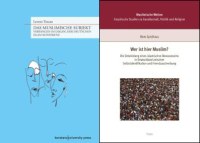Entanglements in the discursive net of belonging(s) - The discovery of Muslim subjectivities in Germany between heteronomy and self-empowerment
DOI:
https://doi.org/10.22029/ko.2013.792Abstract
The Muslim subject is much in demand – as a topic of numerous media representations and (popular) scientific publications as well as a protagonist in the field of German security and integration policy. But where is this subject coming from so abruptly, what are its characteristics, and where does it actually belong? With a critical eye, sharpened on Michel Foucault's concept of governmentality and Judith Butler's theory of subjectivation, respectively, the sociologist and political scientist Levent Tezcan and the Islamic studies scholar Riem Spielhaus each pursue these questions. While Tezcan, in his essayistic piece of 2012, Das muslimische Subjekt. Verfangen im Dialog der Deutschen Islam Konferenz exposes the current German Islam policy – in its form of a governmental 'Cultural Dialogue' – as a strategic population policy, Spielhaus' empirical study Wer ist hier Muslim? Die Entwicklung eines islamischen Bewusstseins in Deutschland zwischen Selbstidentifikation und Fremdzuschreibung – published in 2011 – focuses on the ambivalences emerging in the process of Muslim subjectivation and collectivization.

Downloads
Published
Issue
Section
License
All articles (not book covers) in KULT_online from issue 50 on are published under the license Creative Commons Attribution 4.0. All published articles may be reused under the conditions of the license, particularly for commercial purposes and through editing the article (Human-Readable Summary). All authors (have) permitted the publication under the above mentioned license. There is no copyright transfer towards KULT_online. For all book covers specific rights might be reserved, please contact the respective publisher for any lawful reuse. All contributions published in issue 1-49 of KULT_online are free available online and protected by the German Copyright Law.



